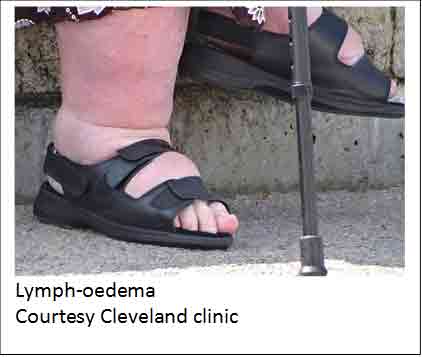Why do your legs swell?
Written by Dr harold Gunatillake –Health writer
When you are young and active swelling of the legs and round the ankles are a rarity unless you suffer from a disease like nephritis- chronic inflammation of the kidneys due to many reasons.
Venous blood pumping from the feet and legs work efficiently through the pumping action of the peripheral heart and that would be your calf muscles. There is an efficient lymphatic system which takes extra-cellular body fluids in the legs towards the heart an additional system to remove fluid (lymph) from the lower extremity.
As you get older, in your sixties you may notice a swelling round your ankles and feet and pressing the skin with the thumb, the skin would pit due to accumulation of fluid in the tissues. This is referred to as “pitting oedema” which could arise due to lack of movement of your legs or an underlying disease condition.
Travelling in an airplane for long hours you could get swelling around your ankles and feet due to non-movement of your legs, and the peripheral pump being inactive. This condition is called lymphatic stasis which disappears after a few hours at ground level when keep walking. It is advised to walk on the isle or move your feet in a circular sequence to avoid this uncomfortable situation.
You could get mild painless swelling of legs for no reason. As you get older if you are prone to arthritis you may get swelling round the ankle joints if arthritis has set in. This would be painful and needs treating the arthritis.
Those people suffering from malnutrition in developing countries may have generalised and leg swelling. Anaemia could be responsible, too.
Those individuals having varicose veins of the legs with time will notice swelling around the ankles. During the early stages strapping and with progress of the varicose veins may need to undergo surgery to correct the situation.
In addition you get a flush round the ankles with minute tortuous veins and skin rashes. All this is due to bad circulation of venous blood.
Heart failure: When your heart muscles are weak, pumping action also becomes weak. Fluid builds up in the body, mostly visible in the dependant parts like the lower limbs. Fluid build-up is due to reduced blood floor out of the heart causing blood returning to the heart through the veins get blocked up. This leads to fluid accumulation not only in the lower limbs, but also in the abdomen (ascites) and in the lungs (pulmonary oedema).
You will also notice that whilst lying down in bed over-night to sleep reduces the fluid and because of gravity increases the amount and pressure of blood in the veins of the lower limbs.
In this situation the doctor will prescribe diuretics therapy to get rid of the excess accumulated fluid through the kidneys.
Kidney Failure
If the kidneys don’t excrete excess electrolytes, muscle breakdown products like creatinine and blood urea, there is a tendency for accumulation of fluids in the body resulting in generalised oedema of the body. This is a serious situation, unless urgent remedial measures are taken you may end up for dialysis.
Overweight
When you are obese there is a tendency to accumulate fluid in the legs and round the ankles, which is painless.
In deep vein thrombosis (DVT) due to blockage of returning venous blood you could get swelling of your legs.
Women who take estrogen and during pregnancy may get swelling of the legs.
Medications
Certain medication can give painless swelling around the ankles and lower leg. They are- antidepressants, blood pressure medication like calcium channel blockers, and hormones and steroids
Those who take excess salt in there food lead to water retention in the legs.
Skin infections around the ankle can cause swelling.
Trauma in the form of the sprain or fractures can cause swelling in the ankle region for months.
Liver disease: Severe liver disease such as cirrhosis causes fluid retention. In liver failure there is also low albumen in the blood and other proteins and fluids can leak into the abdomen and also cause leg swelling.
Lymph-oedema: This condition is due to the lymphatic blockage in the lower limbs. There are thread-like minute vessels that convey body fluids called lymph through these vessels. In cases of chronic inflammation as in filariasis, and damage to these vessels after cancer surgery may get lymph-oedema as a complication. This oedema is very common in the arms of ladies who have undergone radical surgery for breast cancer.
If you are healthy, not taking any medication or not over-weight, you could be taking too much of salt in your food to cause retention of fluid. The solution is obvious.









No Comments